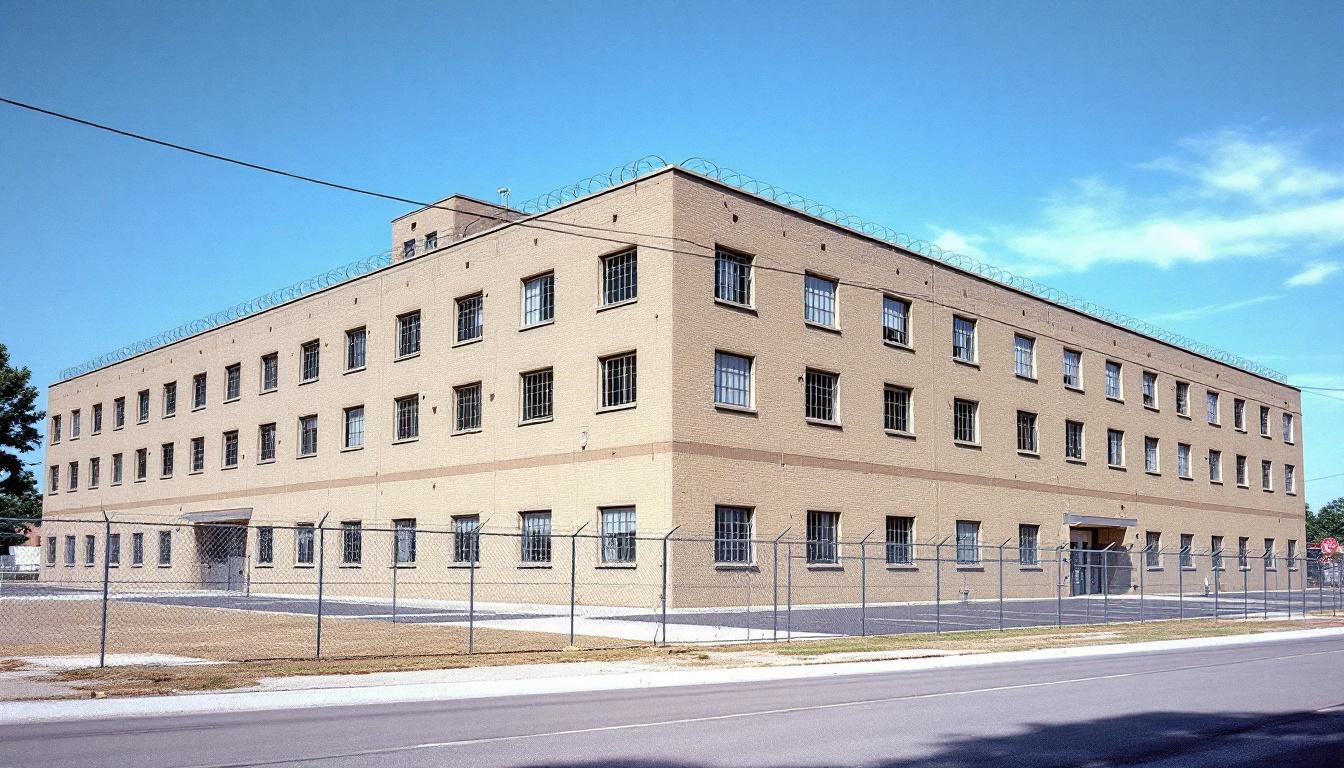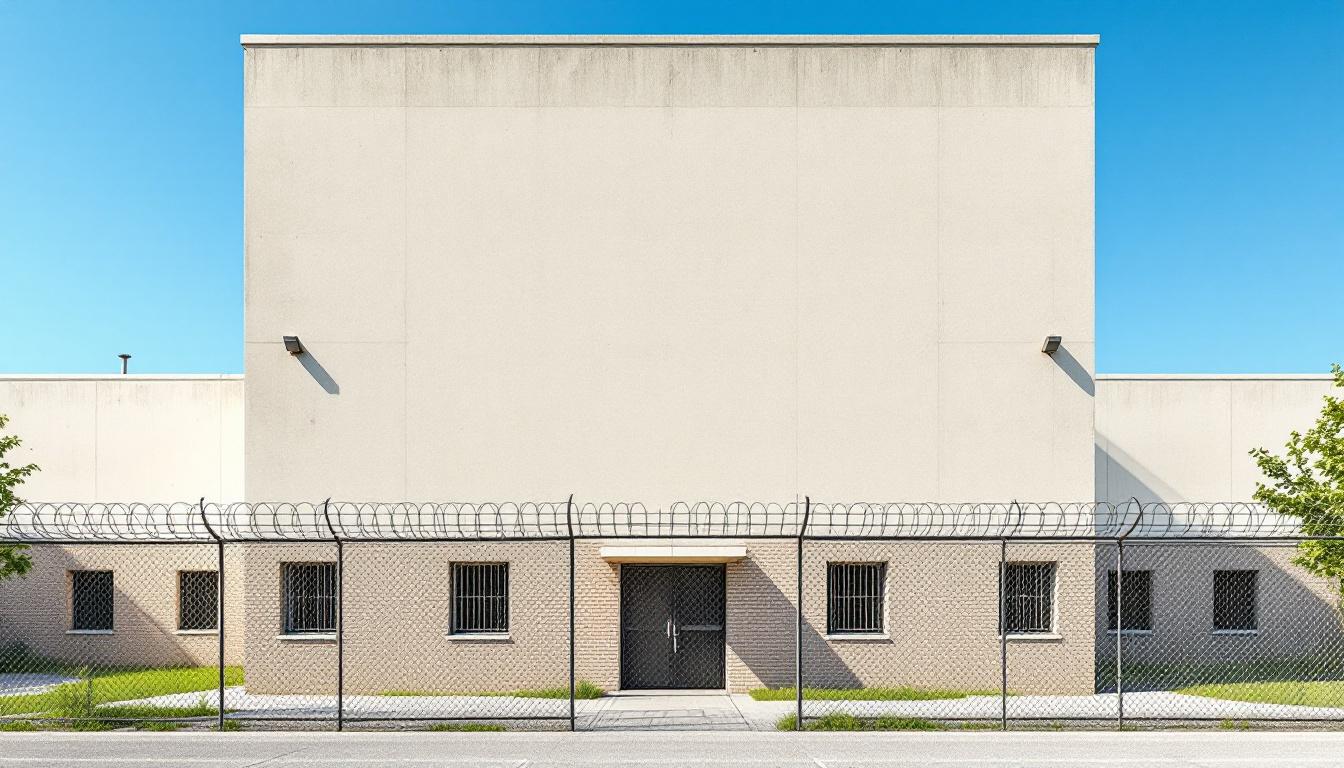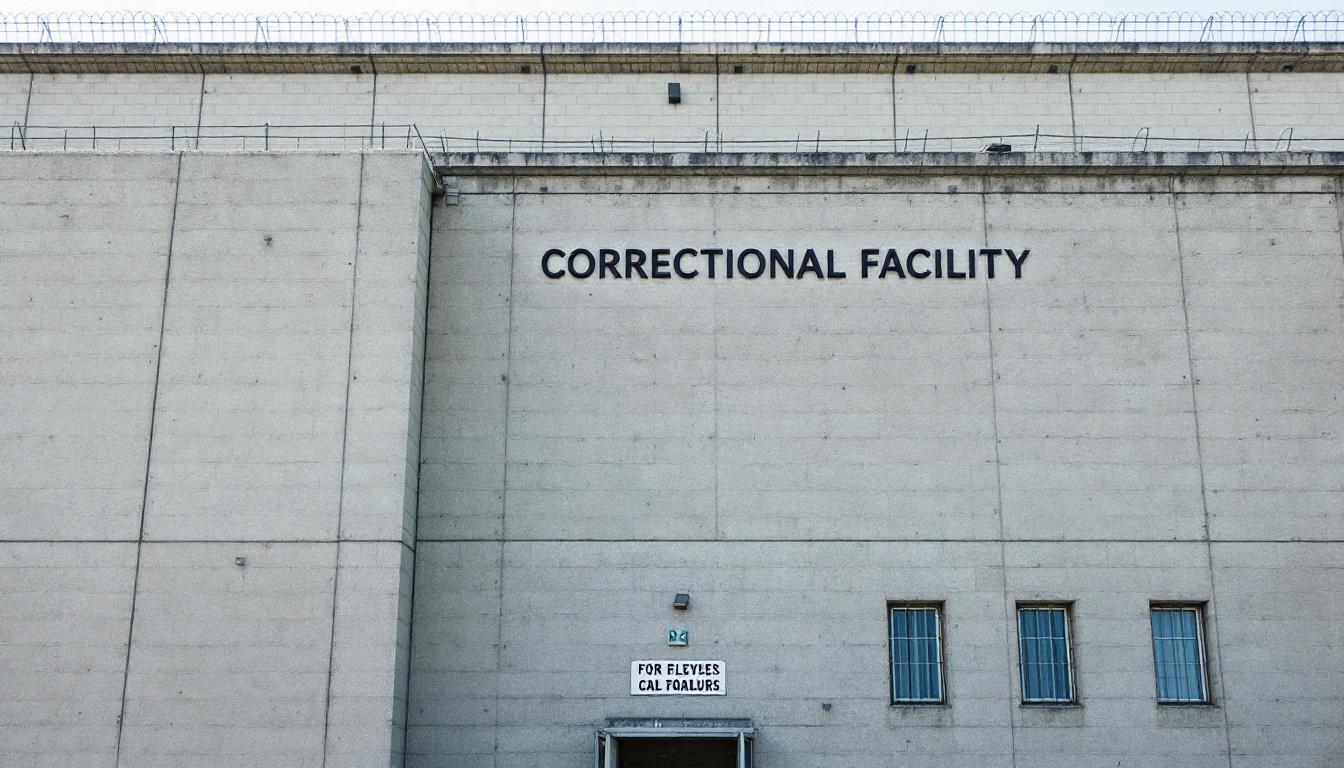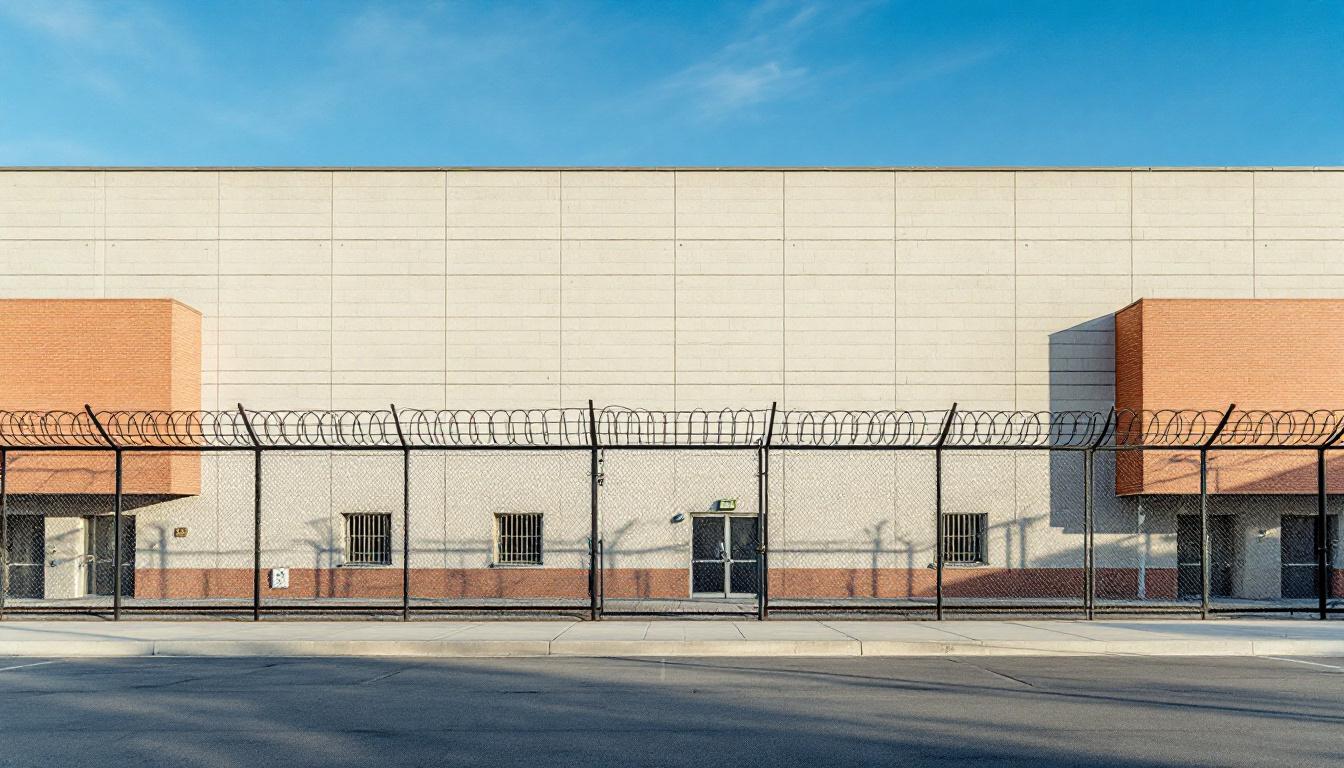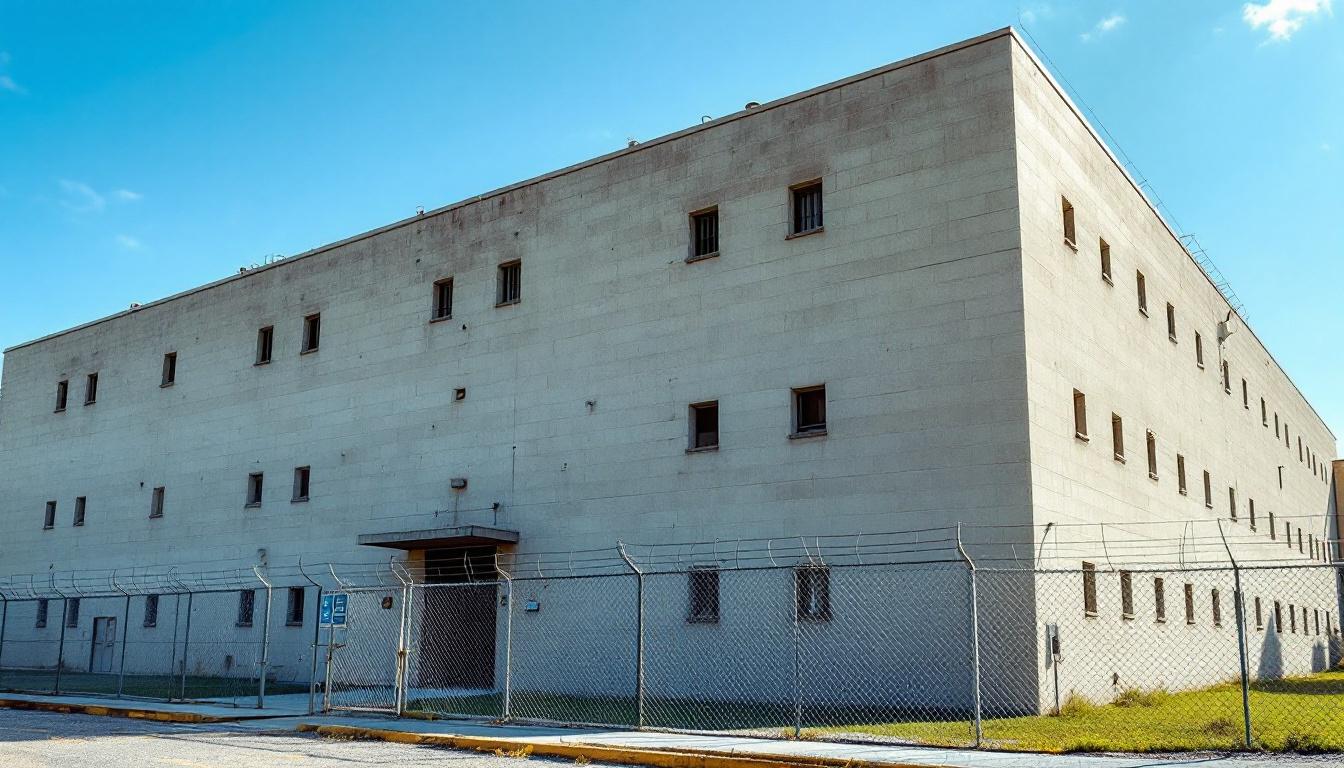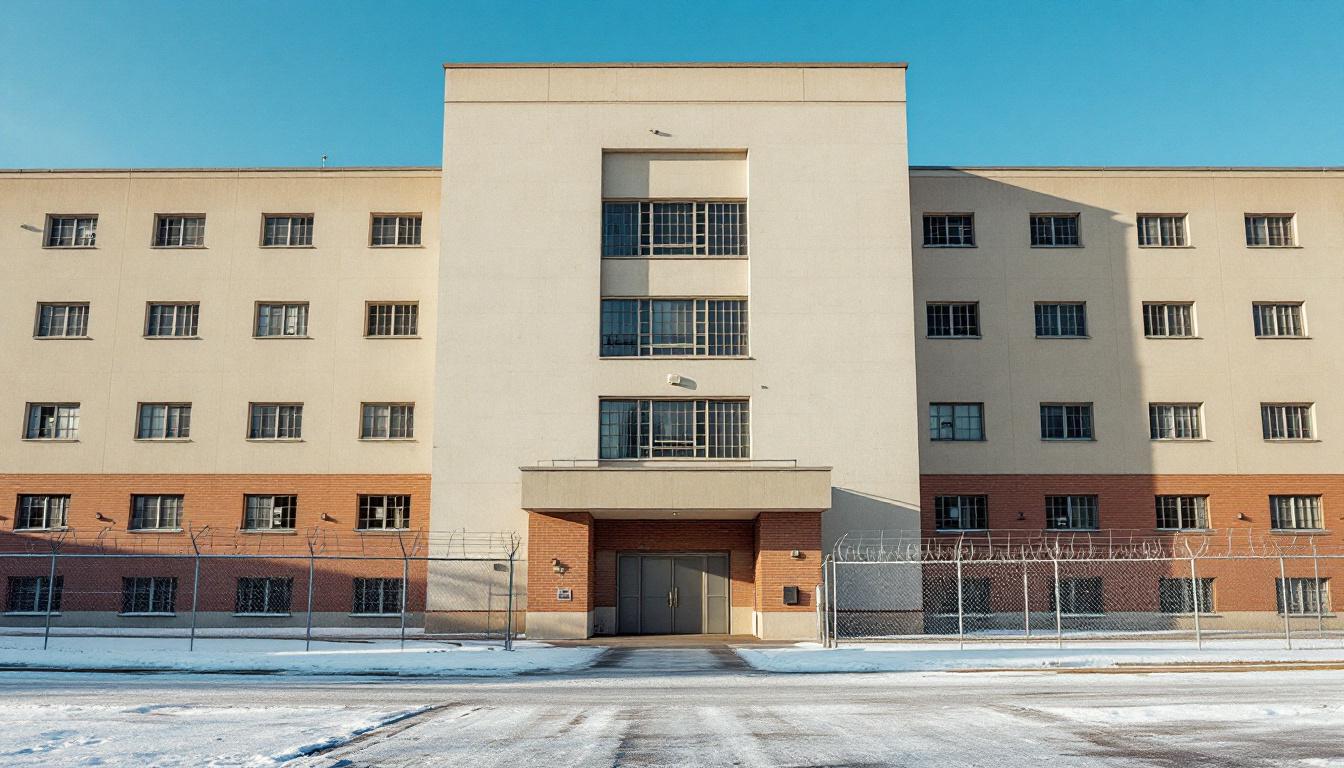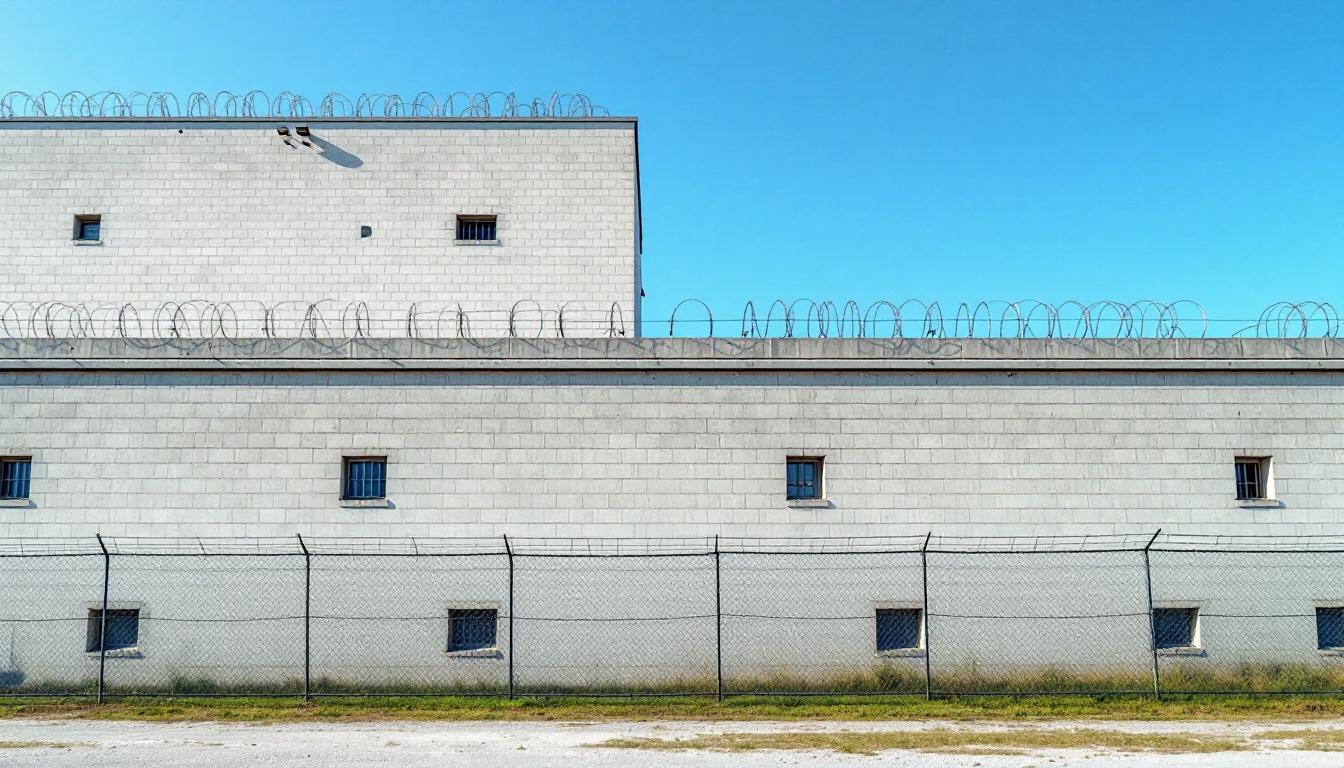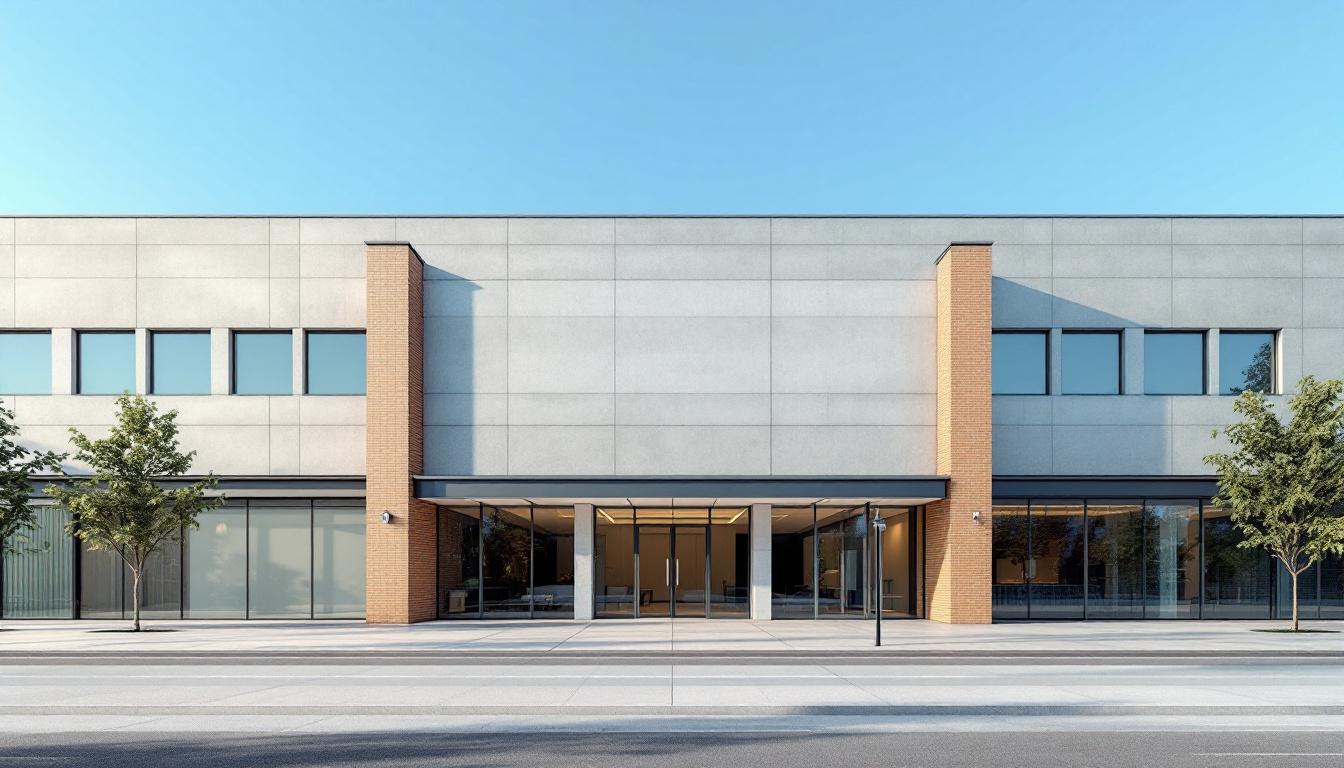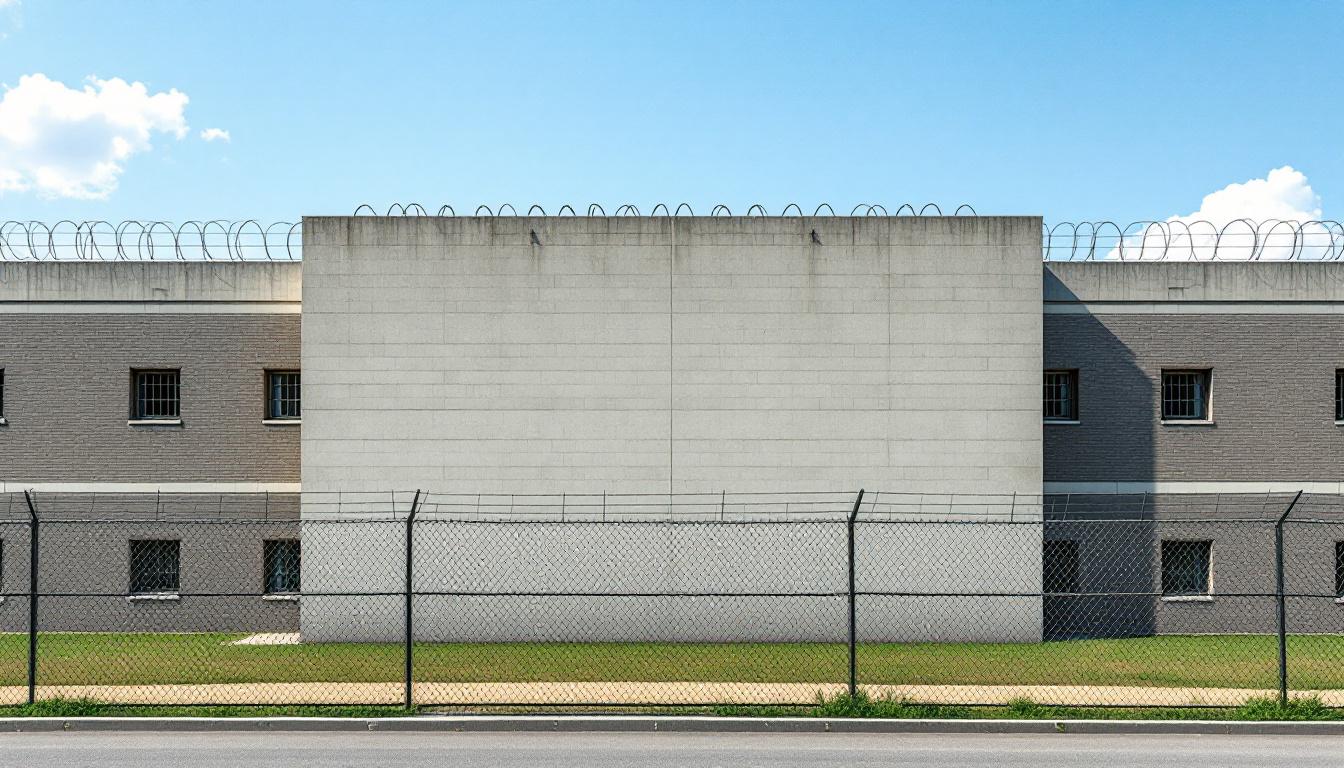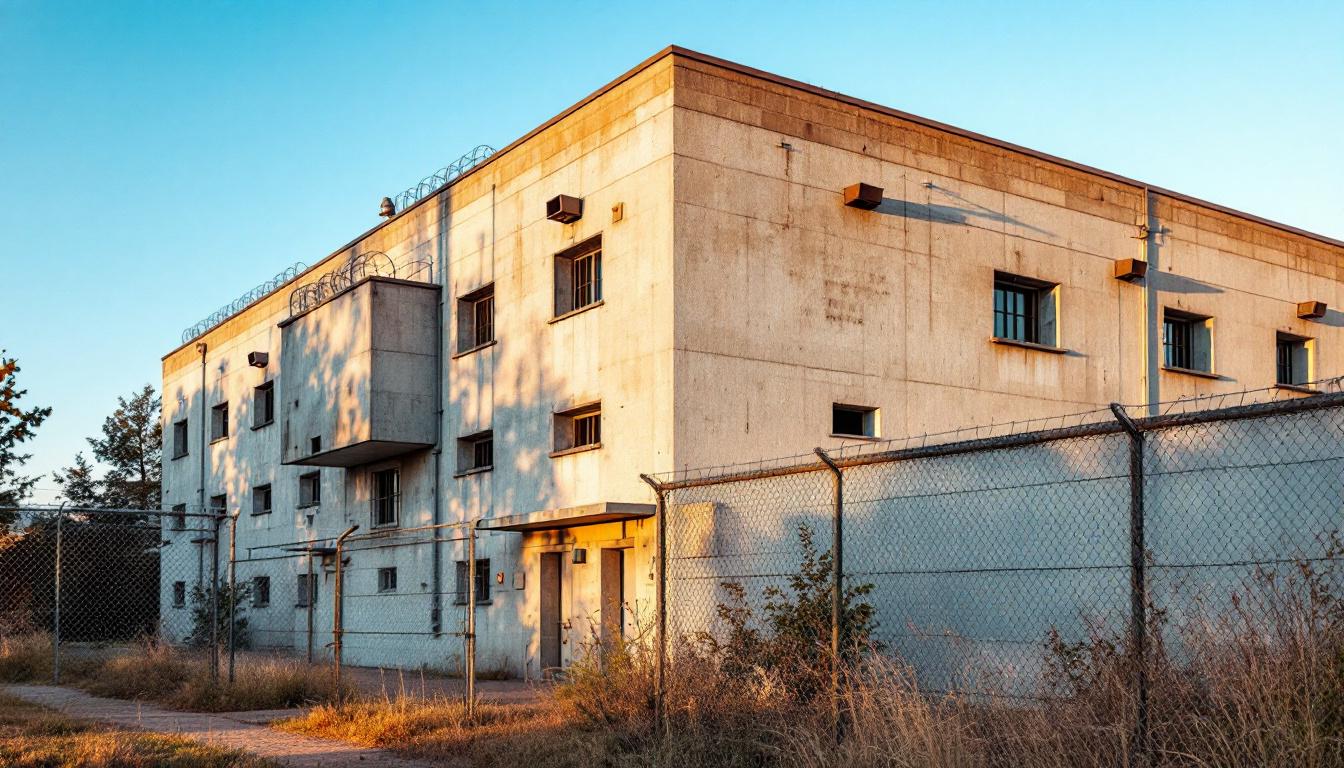
Quick Navigation
How to contact an inmate at Franklin County Adult Detention
This comprehensive guide will walk you through how to connect with an inmate at Franklin County Adult Detention. Follow the steps below to find an inmate and send letters and photos:
- Search for the inmate using our search tool below
- Create your account or log in to Penmate
- Write your message (up to 6,000 characters)
- Send instantly - inmates receive printed copies daily
Find an Inmate
Search for an inmate to start communicating today
Tip: You can search by first name, last name, or inmate ID number
To contact a person at Franklin County Adult Detention start by searching for the person on the facility website. Perform a search by following these steps:
- Step 1: Enter their first name and last name into the search form and click "Search"
- Step 2: Locate their inmate record
- Step 3: Write down their Inmate ID and any housing information provided
Important! Be sure to enter the person's full name. Nicknames should not be used.
How to Send Messages to Inmates

You can use your phone or computer to send emails, letters, and photos to an inmate. Messages are sent electronically to inmate tablets or kiosks at the facility. If you would like to send a message, start by searching for an inmate at Franklin County Adult Detention.
Sending Photos and Postcards

A great way to send love and support to a loved one at Franklin County Adult Detention is to send photos and postcards. It only takes a few minutes to send photos from your phone and it makes a huge difference. You can also mail postcards with words of support and inspiration, or design your own postcard for special moments like birthdays and holidays.
Important! Be sure not to send any explicit photos or they may not be approved by the facility. You can also use a photo printing app like Penmate to make sure your photos are printed at the correct size (4x6 or 3x5) and are mailed according to the rules and regulations of Franklin County Adult Detention.
Frequently asked questions about Franklin County Adult Detention
-
How long does it take to deliver a message?
If you're sending an email message your letter is usually delivered within 24-48 hours. For messages sent via mail you should expect delivery within 3-7 days. All messages will need be approved by Franklin County Adult Detention.
-
How much does it cost to send a message to Franklin County Adult Detention?
You can send a message free using your phone or mail a message via USPS for the price of a $0.60 stamp and envelope. You can also purchase credits or e-stamps from services starting at $1.99.
-
What services can I use to contact an inmate at Franklin County Adult Detention?
Penmate
You can use Penmate to send letters and photos to an inmate from your phone. It's an easy way to stay in touch during your loved one's incarceration. Use the inmate locator to find an inmate's location and contact information, then you can send messages within a few minutes.
Securus messaging
Securus may be another option for communicating with an inmate at Franklin County Adult Detention. You can create a friends and family account and purchase credits to send messages. All messages will be reviewed and must be approved by the facility.
JPay
Some county jails and state prisons may support sending messages with JPay. You must register an account with the system, find your loved one, and purchase stamps to send messages. For some locations you can also attach photos.
Smart Jail Mail
You may also check if Smart Jail Mail is available at Franklin County Adult Detention. Smart Jail Mail is operated by Smart Communications and has contracted with some state and county jails. After purchasing credits, your messages and photos are sent to the facility, printed out, and then handed out to your loved one.
-
What is the mailing address of Franklin County Adult Detention?
Mailing address:
Franklin County Adult Detention
305 S Main St
Ottawa, KS 66067
Phone: (785) 229-1220Business hours:
- Monday: Open 24 hours
- Tuesday: Open 24 hours
- Wednesday: Open 24 hours
- Thursday: Open 24 hours
- Friday: Open 24 hours
- Saturday: Open 24 hours
- Sunday: Open 24 hours
-
What are the visiting hours at Franklin County Adult Detention?
Visiting hours at Franklin County Adult Detention vary by housing unit and security level. Generally, visits are scheduled on weekends and holidays, with some facilities offering weekday visits. Contact the facility directly at (785) 229-1220 or check their website for the current visiting schedule. Visits typically last 30-60 minutes and must be scheduled in advance.
-
What items are prohibited when sending mail to Franklin County Adult Detention?
Prohibited items typically include: cash, personal checks, stamps, stickers, glitter, glue, tape, staples, paperclips, polaroid photos, musical or blank greeting cards, hardcover books, magazines with staples, and any items containing metal or electronics. Only send letters on plain white paper with blue or black ink. Photos must be printed on regular photo paper (no Polaroids). Always check with Franklin County Adult Detention for their specific mail policies.
-
How do I send money to an inmate at Franklin County Adult Detention?
You can send money to an inmate at Franklin County Adult Detention through several methods: 1) Online using JPay, Access Corrections, or the facility's approved vendor, 2) Money orders mailed directly to the facility with the inmate's name and ID number, 3) Kiosks located in the facility lobby, or 4) Over the phone using a credit or debit card. Fees vary by method, typically ranging from $2.95 to $11.95 per transaction.
-
Can I schedule a video visit with an inmate at Franklin County Adult Detention?
Many facilities now offer video visitation as an alternative to in-person visits. At Franklin County Adult Detention, video visits may be available through services like Penmate, Securus Video Connect, GTL, or ICSolutions. Video visits typically cost $10-20 for 20-30 minutes and must be scheduled in advance. You'll need a computer or smartphone with a camera and reliable internet connection. Contact the facility for their specific video visitation policies and approved vendors.
-
What identification do I need to visit an inmate at Franklin County Adult Detention?
All visitors must present valid government-issued photo identification such as a driver's license, state ID, passport, or military ID. Minors must be accompanied by a parent or legal guardian who can provide the minor's birth certificate. Some facilities require visitors to be on the inmate's approved visitation list, which may require a background check. Contact Franklin County Adult Detention for specific ID requirements and visitor approval procedures.
-
How can I find out an inmate's release date?
To find an inmate's release date at Franklin County Adult Detention, you can: 1) Use the online inmate search tool if available, 2) Call the facility's records department, 3) Contact the inmate's case manager or counselor, or 4) Have the inmate provide this information during a call or visit. For privacy reasons, some facilities only release this information to immediate family members.
Facility Overview
Contact Information
Franklin County Adult Detention305 S Main St
Ottawa, KS 66067
Phone: (785) 229-1220

About Franklin County Adult Detention
Serving Ottawa and the broader Franklin County community, this KS correctional facility operates as a vital component in the region's justice system, maintaining connections between incarcerated individuals and the support networks that help facilitate successful reintegration. The facility typically houses individuals awaiting trial, serving shorter sentences, or participating in various court-ordered programs, while working to maintain family bonds and community ties that research shows are essential for reducing recidivism rates.
Within Kansas's network of county corrections facilities, Franklin County Jail functions as more than a detention center—it often serves as a bridge between the justice system and community resources. The facility may offer programming that addresses underlying issues contributing to criminal behavior, such as substance abuse counseling, educational opportunities, and life skills development. Inmates services typically include access to medical care, mental health support, and assistance with maintaining employment or housing connections that will be crucial upon release. The jail generally coordinates with local organizations, courts, and social services to ensure that individuals have access to the resources they need both during incarceration and as they prepare to return to the community.
Located in Ottawa, the facility operates within the broader context of Kansas's correctional philosophy, which increasingly emphasizes rehabilitation alongside public safety. Staff members typically work to create an environment that balances security requirements with opportunities for personal growth and community connection. The jail may provide work programs, educational classes, and counseling services designed to address the root causes of criminal behavior while helping individuals develop the skills and support systems necessary for successful reintegration into Franklin County communities.
Programs & Services
Personal growth and skill development form the foundation of rehabilitation services at Franklin County Jail. The facility typically emphasizes helping inmates build practical abilities and address underlying issues that may have contributed to their incarceration. This approach recognizes that meaningful change often requires both educational opportunities and therapeutic support to create lasting positive outcomes.
Educational services may provide inmates with opportunities to complete their high school equivalency or develop basic literacy skills. Furthermore, vocational training programs often include hands-on instruction in trades such as welding, which can lead to employment opportunities upon release. These services typically focus on building marketable skills that inmates can use to support themselves and their families in the community.
Support services often address personal challenges through structured programming. Substance abuse treatment may help inmates understand addiction patterns and develop coping strategies for maintaining sobriety. Furthermore, domestic violence programs typically provide education about healthy relationships and conflict resolution. These therapeutic services often work together to help participants develop better decision-making skills and emotional regulation techniques that support successful reintegration into the community.
Daily Life & Visitation
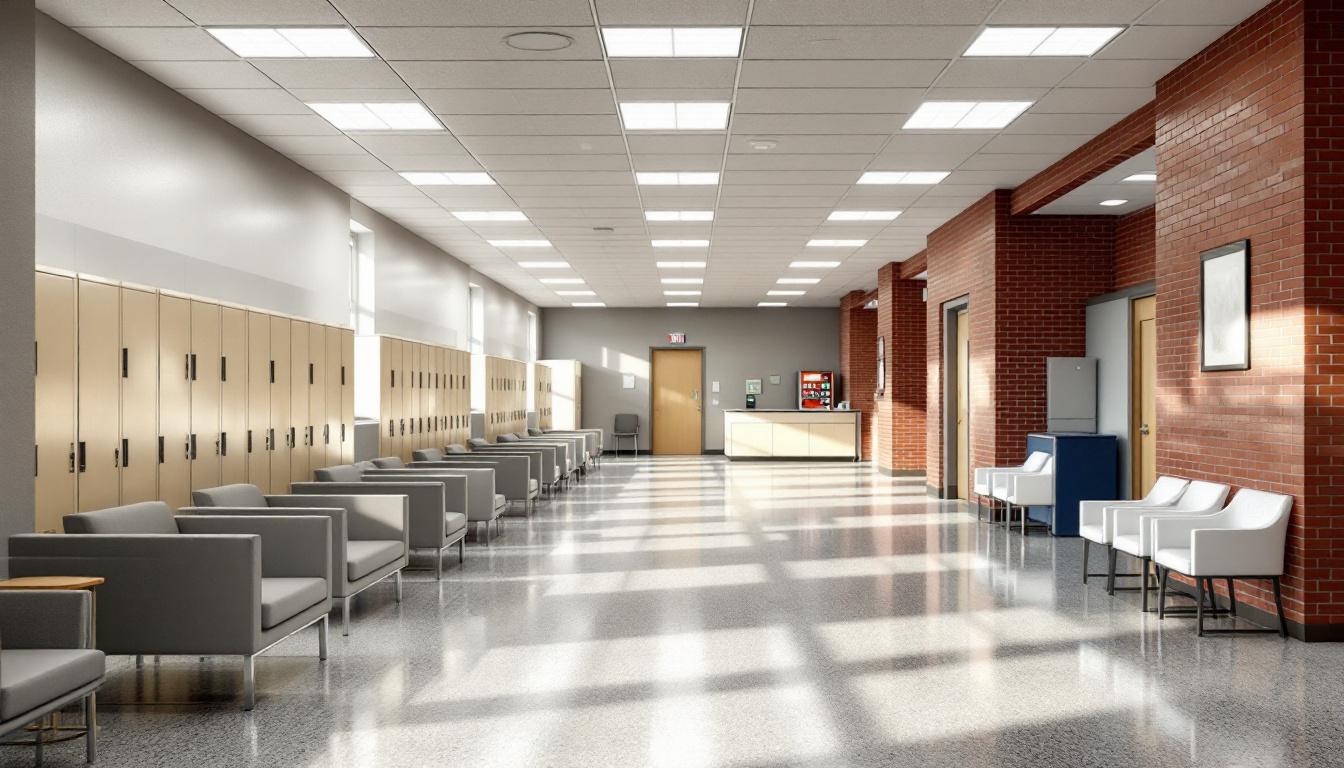
Behind the secure walls of Franklin County Jail, inmates navigate a highly structured environment where concrete blocks and steel bars define their immediate surroundings. The facility currently operates on a regimented schedule that begins with early morning counts and continues to follow established routines throughout each day. Inmates typically wake before dawn for headcount procedures, followed by meal service and assigned activities that provide structure to their daily lives.
Housing units generally accommodate multiple inmates in shared cells or dormitory-style arrangements, with basic furnishings including bunks, storage areas, and shared bathroom facilities. Furthermore, inmates adapt to limited personal space by organizing their few permitted belongings efficiently and establishing informal routines with their cellmates. The dining area serves meals at designated times, with inmates usually eating in shifts based on their housing assignments and security classifications.
Although recreational opportunities may be limited, the facility typically provides access to exercise periods in outdoor yards or indoor common areas when security conditions permit. Inmates often participate in work assignments such as kitchen duties, laundry services, or facility maintenance tasks that help maintain daily operations. Visitation policies generally allow scheduled contact with family members, while phone access and commissary services provide additional connections to the outside world and basic comfort items that help inmates manage their time while incarcerated.
Ready to Connect?
Start communicating with your loved one today
Search for an Inmate
